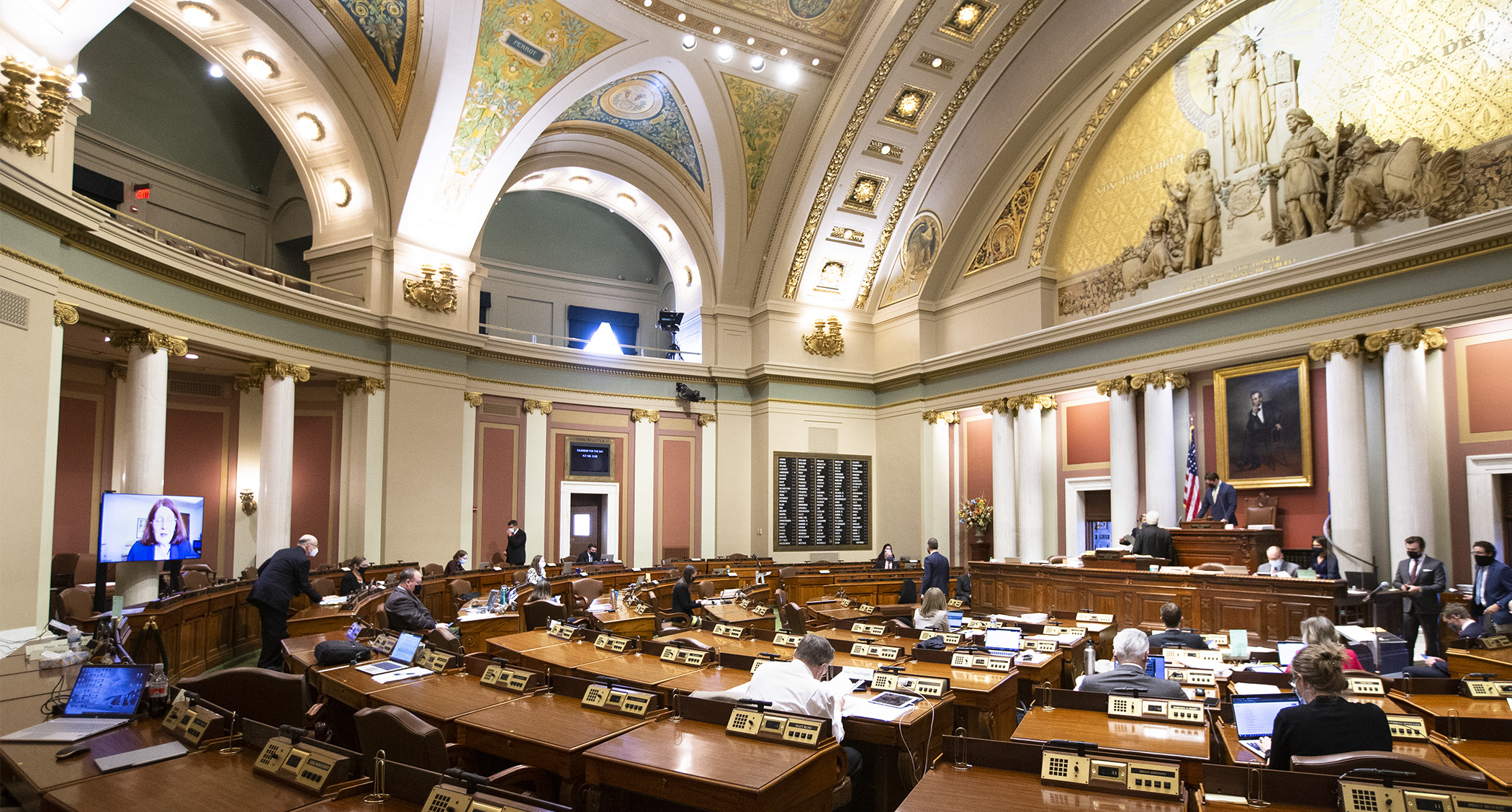Plan to extend eviction ban beyond COVID-19 emergency passes House

A bill requiring landlords to wait at least 60 days before starting most eviction proceedings in the 12 months after the expiration of the state's COVID-19 peacetime emergency — which includes an eviction moratorium — has been passed by the House.
Sponsored by Rep. Alice Hausman (DFL-St. Paul) and Sen. Rich Draheim (R-Madison Lake), HF12/SF1470* was passed, as amended, 70-62 Thursday and returned to the Senate, where that body's version was passed 46-21 on April 12.
DFLers say the bill would ensure renters are stably housed as the pandemic winds down.
"We don't want to replace a health crisis with an eviction crisis," Hausman said.
Republicans say the bill would further penalize landlords, who have also struggled during the pandemic, and could further subject them to the whims of tenants looking to game the system.
"We've got to look at what's happening to those folks that are taking care of those that are having the hard time," said Rep. Tama Theis (R-St. Cloud).
The bill would only allow immediate evictions during the 12-month period in the most serious circumstances, such as if a tenant unlawfully destroys property or materially violates a lease, not for rent nonpayment.
The 60-day waiting period would start when a landlord gives a tenant written notice of an impending eviction that includes the amount due and ways they can find legal and financial assistance. Late fees and rent increases could not be assessed during that period.
Mortgage lenders would also be required to wait 60 days before filing foreclosures.
Hausman said the 60-day notice requirement would allow renters and landlords time to access rental assistance, noting the $375 million the state is receiving for that purpose under the American Rescue Plan.
Until the peacetime emergency ends, tenants could not be kicked out unless a serious violation is committed or a landlord's immediate family member plans to move into the unit.
In those cases, a landlord would be required to provide a written notice of the intent to file an eviction at least seven days before doing so.
Landlords could not raise rent by more than 6% and could not raise it more than once in the 12-month period after the peacetime emergency ends. They would be prohibited from charging late fees when tenants do not pay rent because of COVID-19-related income losses.
Renters would still be obligated to make full rent payments under the bill.
Since March 2020, Gov. Tim Walz has barred landlords and lenders from evicting renters and foreclosing upon homeowners for nonpayment, except in cases where tenants are seriously endangering other residents or are engaged in criminal behavior.
Hausman said such moratoriums across the U.S. have prevented hundreds of thousands of COVID-19 cases and saved thousands of lives.
Unsuccessful amendment
Before its passage, Theis unsuccessfully offered an amendment that would have substituted the Senate language into the bill.
That bill would void the eviction moratorium, preventing the governor from issuing similar orders or extending them beyond 30 days without legislative approval.
Through June 1, 2022, landlords would not be able to file evictions against tenants with pending applications for COVID-19 emergency rental assistance.
Thirty days after enactment, they could terminate or not renew leases of tenants who have outstanding rent and who are not eligible for rental assistance, and after 60 days, they could evict those tenants. No pre-notice would be required.
Landlords could file evictions against tenants who are eligible for rental assistance but refuse to provide proof they applied or information needed for a landlord to apply on their behalf.
Related Articles
Search Session Daily
Advanced Search OptionsPriority Dailies
Ways and Means Committee OKs proposed $512 million supplemental budget on party-line vote
By Mike Cook Meeting more needs or fiscal irresponsibility is one way to sum up the differences among the two parties on a supplemental spending package a year after a $72 billion state budg...
Meeting more needs or fiscal irresponsibility is one way to sum up the differences among the two parties on a supplemental spending package a year after a $72 billion state budg...
Minnesota’s projected budget surplus balloons to $3.7 billion, but fiscal pressure still looms
By Rob Hubbard Just as Minnesota has experienced a warmer winter than usual, so has the state’s budget outlook warmed over the past few months.
On Thursday, Minnesota Management and Budget...
Just as Minnesota has experienced a warmer winter than usual, so has the state’s budget outlook warmed over the past few months.
On Thursday, Minnesota Management and Budget...
